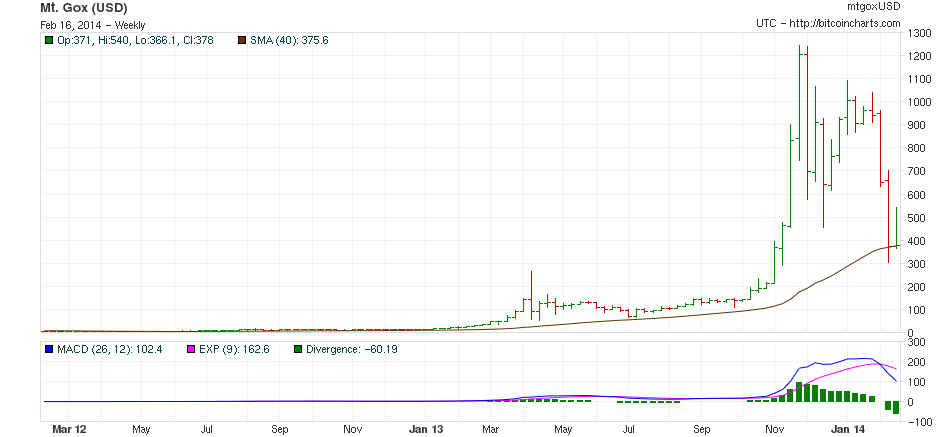In my previous commentary I remarked that a bottom to the Bitcoin crash wasn't likely until the mainstream media began publishing negative headlines on Bitcoin. Well the negative headlines have just started with the above video journalism piece by Reuters. The intensity of negative sentiment behind this piece isn't quite strong enough to suggest emphatically that a bottom is in, but it does suggest a confirmed interim bottom is likely near.
On a related note, the apparent imminent bankruptcy of the Mt. Gox exchange has created a torrent of speculation as to the future of the electronic currency. Experts point to the latest events as underscoring Bitcoin's ultra-speculative nature and lack of transparency. The e-coin has been condemned by some as being more a commodity and less a currency. The image problem currently plaguing Bitcoin has only been exacerbated by the Mt. Gox fiasco.
Bitcoin will undoubtedly survive this crisis, and its bear market will eventually end. But until the dust settles investors are well advised to avoid new commitments to Bitcoin. We continue to await a confirmed bottom signal from our indicators; for now the Bitcoin bear market remains intact.
On a related note, the apparent imminent bankruptcy of the Mt. Gox exchange has created a torrent of speculation as to the future of the electronic currency. Experts point to the latest events as underscoring Bitcoin's ultra-speculative nature and lack of transparency. The e-coin has been condemned by some as being more a commodity and less a currency. The image problem currently plaguing Bitcoin has only been exacerbated by the Mt. Gox fiasco.
Bitcoin will undoubtedly survive this crisis, and its bear market will eventually end. But until the dust settles investors are well advised to avoid new commitments to Bitcoin. We continue to await a confirmed bottom signal from our indicators; for now the Bitcoin bear market remains intact.


